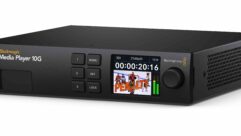
UPDATE:
The Small Business Administration’s loan processing platform went down Monday for as long as four hours, temporarily halting the ability of lenders to process any loans for small business owners seeking relief from the impact of the coronavirus.
Bloomburg reported that banking representatives and an administration official said that the E-Tran system that lenders use to process loans under a new relief program that launched on Friday was inaccessible for part of the day on Monday.
However, an SBA official said later that the system was up and running and said it’s not accurate that the system crashed, without elaborating and said that SBA continues to process, approve and guarantee billions of dollars in loans per hour and continues to add lenders to the system,.
The crash follows the rocky launch of the $349 billion Payroll Protection Program with loans meant to help small businesses pay workers and expenses as part of the $2 trillion stimulus package.
Considering the long hold times and struggles that people are reporting from online unemployment application sites, it’s perhaps not surprising that anything that many of us need right now will be a challenge.
Here are the SBA programs and links.
Coronavirus (COVID-19): Small Business Loan Resources
Health and government officials are working together to maintain the safety, security, and health of the American people. Small businesses are encouraged to do their part to keep their employees, customers, and themselves healthy.
Here is what the SBA is offering for Loans, Capital Access, Exporting Assistance, Government Contracting, and Local Assistance.
To access an in-person office, use the SBA’s Local Assistance Directory to locate the office nearest you.
The SBAM has many online resources for accessing capital, loans, help with export needs and government contracting and more. Read down.
Economic Injury Disaster Loan Program
Small business owners in the following designated states are currently eligible to apply for a low-interest loan due to Coronavirus (COVID-19): California, Connecticut, Delaware, the District of Columbia, Florida, Georgia, Indiana, Maine, Massachusetts, Montana, Nevada, New Hampshire, New Jersey, New Mexico, North Carolina, Rhode Island, Utah, and Washington. Click here to apply.
Find more information on the SBA’s Economic Injury Disaster Loans at: SBA.gov/Disaster.
The SBA will work directly with state Governors to provide targeted, low-interest loans to small businesses and non-profits that have been severely impacted by the Coronavirus (COVID-19). The SBA’s Economic Injury Disaster Loan program provides small businesses with working capital loans of up to $2 million that can provide vital economic support to small businesses to help overcome the temporary loss of revenue they are experiencing.
Common Issues Small Businesses May Encounter:
- Capital Access – Incidents can strain a small business’s financial capacity to make payroll, maintain inventory and respond to market fluctuations (both sudden drops and surges in demand). Businesses should prepare by exploring and testing their capital access options so they have what they need when they need it. See SBA’s capital access resources.
- Workforce Capacity – Incidents have just as much impact on your workers as they do your clientele. It’s critical to ensure they have the ability to fulfill their duties while protected.
- Inventory and Supply Chain Shortfalls – While the possibility could be remote, it is a prudent preparedness measure to ensure you have either adequate supplies of inventory for a sustained period and/or diversify your distributor sources in the event one supplier cannot meet an order request.
- Facility Remediation/Clean-up Costs – Depending on the incident, there may be a need to enhance the protection of customers and staff by increasing the frequency and intensity by which your business conducts cleaning of surfaces frequently touched by occupants and visitors. Check your maintenance contracts and supplies of cleaning materials to ensure they can meet increases in demand.
- Insurance Coverage Issues – Many businesses have business interruption insurance; Now is the time to contact your insurance agent to review your policy to understand precisely what you are and are not covered for in the event of an extended incident.
- Changing Market Demand – Depending on the incident, there may be access controls or movement restrictions established which can impede your customers from reaching your business. Additionally, there may be public concerns about public exposure to an incident and they may decide not to go to your business out of concern of exposing themselves to greater risk. SBA’s Resources Partners and District Offices have trained experts who can help you craft a plan specific to your situation to help navigate any rapid changes in demand.
- Marketing – It’s critical to communicate openly with your customers about the status of your operations, what protective measures you’ve implemented, and how they (as customers) will be protected when they visit your business. Promotions may also help incentivize customers who may be reluctant to patronize your business.
- Plan – As a business, bring your staff together and prepare a plan for what you will do if the incident worsens or improves. It’s also helpful to conduct a tabletop exercise to simulate potential scenarios and how your business management and staff might respond to the hypothetical scenario in the exercise. For examples of tabletop exercises, visit FEMA’s website at: https://www.fema.gov/emergency-planning-exercises
SBA Products and Resources
SBA is here to assist small businesses with accessing federal resources and navigating their own preparedness plans as described by the CDC’s Guidance for Businesses and Employers.
SBA works with a number of local partners to counsel, mentor and train small businesses. The SBA has 68 District Offices, as well as support provided by its Resource Partners, such as SCORE offices, Women’s Business Centers, Small Business Development Centers and Veterans Business Outreach Centers. When faced with a business need, use the SBA’s Local Assistance Directory to locate the office nearest you.
Access to Capital
SBA provides a number of loan resources for small businesses to utilize when operating their business. For more information on loans or how to connect with a lender, visit: https://www.sba.gov/funding-programs/loans.
How to get access to lending partners? SBA has developed Lender Match, a free online referral tool that connects small businesses with participating SBA-approved lenders within 48 hours.
- 7(a) program offers loan amounts up to $5,000,000 and is an all-inclusive loan program deployed by lending partners for eligible small businesses within the U.S. States and its territories. The uses of proceeds include: working capital; expansion/renovation; new construction; purchase of land or buildings; purchase of equipment, fixtures; lease-hold improvements; refinancing debt for compelling reasons; seasonal line of credit; inventory; or starting a business.
- Express loan program provides loans up to $350,000 for no more than 7 years with an option to revolve. There is a turnaround time of 36 hours for approval or denial of a completed application. The uses of proceeds are the same as the standard 7(a) loan.
- Community Advantage loan pilot program allows mission-based lenders to assist small businesses in underserved markets with a maximum loan size of $250,000. The uses of proceeds are the same as the standard 7(a) loan.
- 504 loan program is designed to foster economic development and job creation and/or retention. The eligible use of proceeds is limited to the acquisition or eligible refinance of fixed assets.
- Microloan program involves making loans through nonprofit lending organizations to underserved markets. Authorized use of loan proceeds includes working capital, supplies, machinery & equipment, and fixtures (does not include real estate). The maximum loan amount is $50,000 with the average loan size of $14,000.
Exporting Assistance
SBA provides export loans to help small businesses achieve sales through exports and can help these businesses respond to opportunities and challenges associated with trade, such as COVID-19. The loans are available to U.S. small businesses that export directly overseas, or those that export indirectly by selling to a customer that then exports their products.
- Export Express loan program allows access to capital quickly for businesses that need financing up to $500,000. Businesses can apply for a line of credit or term note prior to finalizing an export sale or while pursuing opportunities overseas, such as identifying a new overseas customer should an export sale be lost due to COVID-19.
- Export Working Capital program enables small businesses to fulfill export orders and finance international sales by providing revolving lines of credit or transaction-based financing of up to $5 million. Businesses could use a loan to obtain or retain overseas customers by offering attractive payment terms.
- International Trade loan program helps small businesses engaged in international trade to retool or expand to better compete and react to changing business conditions. It can also help exporting firms to expand their sales to new markets or to re-shore operations back to the U.S.
Government Contracting
SBA is focused on assisting with the continuity of operations for small business contracting programs and small businesses with federal contracts. For more information on federal contracting, visit https://www.sba.gov/federal-contracting/contracting-guide
More specifically:
- 8(a) Business Development program serves to help provide a level playing field for small businesses owned by socially and economically disadvantaged people or entities, and the government limits competition for certain contracts to businesses that participate. The 8(a) program offer and acceptance process is available nationwide, and the SBA continues to work with federal agencies to ensure maximum practicable opportunity to small businesses. 8(a) program participants should stay in touch with their Business Opportunity Specialist (BOS).
- HUBZone program offers eligibility assistance every Thursday from 2:00-3:00 p.m. ET at 1-202-765-1264; access code 63068189#. Members of the HUBZone team answer questions to help firms navigate the certification process. For specific questions regarding an application, please contact the HUBZone Help Desk at [email protected].
- Women-owned Small Business firms who have questions, please visit www.sba.gov/wosbready or write to [email protected].
If a situation occurs that will prevent small businesses with government contracts from successfully performing their contract, they should reach out to their contracting officer and seek to obtain extensions before they receive cure notices or threats of termination. The SBA’s Procurement Center Representatives can assist affected small businesses to engage with their contracting officer. Use the Procurement Center Representative Directory to connect with the representative nearest you.
Local Assistance
SBA works with a number of local partners to counsel, mentor, and train small businesses. The SBA has 68 District Offices, as well as support provided by its Resource Partners, such as SCORE offices, Women’s Business Centers, Small Business Development Centers and Veterans Business Outreach Centers. When faced with a business need, use the SBA’s Local Assistance Directory to locate the office nearest you.
For background, the SBA issued this press release on March 12, 2020
WASHINGTON – SBA Administrator Jovita Carranza issued the following statement today in response to the President’s address to the nation:
“Small businesses are vital economic engines in every community and state, and they have helped make our economy the strongest in the world. Our Agency will work directly with state Governors to provide targeted, low-interest disaster recovery loans to small businesses that have been severely impacted by the situation. Additionally, the SBA continues to assist small businesses with counseling and navigating their own preparedness plans through our network of 68 District Offices and numerous Resource Partners located around the country. The SBA will continue to provide every small business with the most effective and customer-focused response possible during these times of uncertainty.”
SBA’s Economic Injury Disaster Loans offer up to $2 million in assistance for a small business. These loans can provide vital economic support to small businesses to help overcome the temporary loss of revenue they are experiencing.
Process for Accessing SBA’s coronavirus (COVID-20) Disaster Relief Lending
- The U.S. Small Business Administration is offering designated states and territories low-interest federal disaster loans for working capital to small businesses suffering substantial economic injury as a result of the Coronavirus (COVID-19). Upon a request received from a state’s or territory’s Governor, SBA will issue under its own authority, as provided by the Coronavirus Preparedness and Response Supplemental Appropriations Act that was recently signed by the President, an Economic Injury Disaster Loan declaration.
- Any such Economic Injury Disaster Loan assistance declaration issued by the SBA makes loans available to small businesses and private, non-profit organizations in designated areas of a state or territory to help alleviate economic injury caused by the Coronavirus (COVID-19).
- SBA’s Office of Disaster Assistance will coordinate with the state’s or territory’s Governor to submit the request for Economic Injury Disaster Loan assistance.
- Once a declaration is made for designated areas within a state, the information on the application process for Economic Injury Disaster Loan assistance will be made available to all affected communities.
- These loans may be used to pay fixed debts, payroll, accounts payable and other bills that can’t be paid because of the disaster’s impact. The interest rate is 3.75% for small businesses without credit available elsewhere; businesses with credit available elsewhere are not eligible. The interest rate for non-profits is 2.75%.
- SBA offers loans with long-term repayments in order to keep payments affordable, up to a maximum of 30 years. Terms are determined on a case-by-case basis, based upon each borrower’s ability to repay.
- SBA’s Economic Injury Disaster Loans are just one piece of the expanded focus of the federal government’s coordinated response, and the SBA is strongly committed to providing the most effective and customer-focused response possible.
For additional information, please contact the SBA disaster assistance customer service center. Call 1-800-659-2955 (TTY: 1-800-877-8339) or e-mail [email protected](link sends e-mail).
###
About the U.S. Small Business Administration
The U.S. Small Business Administration helps power the American dream of business ownership. As the only go-to resource and voice for small businesses backed by the strength of the federal government, the SBA empowers entrepreneurs and small business owners with the resources and support they need to start, grow or expand their businesses, or recover from a declared disaster. It delivers services through an extensive network of SBA field offices and partnerships with public and private organizations. To learn more, visit www.sba.gov.
Interactive coronavirus map (international and US) released by Johns Hopkins










